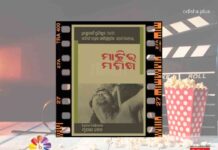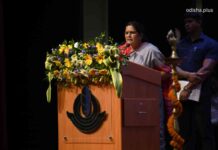Prof Ujjwal K Chowdhury

In the wake of the gruesome Easter bombings that targeted churches and hotels killing over 250 people and re-opening political wounds as it shattered the relative peace Sri Lanka has known since the end of its civil war, the Sri Lankan government had ordered a nationwide curfew for several nights after anti-Muslim riots grip the country. A few instances of violence have emerged in the country after a Muslim man was killed by a mob. Amid the political tensions, Sri Lankan former cricket captain Kumar Sangakkara has appealed the countrymen to unite and not get into the mess of religion, violence, hatred and thuggery.
In a tweet he has asked the countrymen to observe peace and has asked them to not give into the political agendas. “STOP. BREATHE. THINK. OPEN YOUR EYES. If we lose ourselves in violence, racism, thuggery and hatred we lose our country. Unite as Sri Lankans, be peaceful, keep each other safe. Do not give into shameful, divisive political agendas. WE HEAL AND RISE TOGETHER AS ONE NATION.”
This is the best message from a statesman like personality like him in spite of the fact that the terrorist group Islamic State claimed it had a hand in the earlier attacks, which were blamed on two local groups. In the world of grave uncertainties and violence today, voices of sanity need to be brought forth vociferously as this.

Earlier we saw a similar statesmanship by none other than the New Zealand Prime Minister Jacinda Ardane herself. Post the Christchurch Mosque terror attack in New Zealand and her passionate and humane response thereafter, Jacinda transformed from being an admired Prime Minister to a world leader, who represents humankind in all its glorious diversity. A bone-chilling terrorist massacre shook the New Zealand city of Christchurch, in which a self-proclaimed white supremacist took the lives of 50 Muslims including two children and injured dozens more, during their Friday prayers. The man who claimed responsibility for the shooting was an Australian national, who had promoted white nationalism and anti-Muslim sentiments.
As the grief-stricken nation mourned the deaths of the 50 people killed during their prayers on March 15, Jacinda chose a meaningful path of kindness and inclusivity. She showed that not only is she deeply empathetic, she also has nerves of steel and can effectively lead in times of chaos and tragedy. Shifting the global focus from the gunman to the victims is one example of Jacinda’s compassionate handling of the worst terrorist attack in New Zealand’s modern history. Speaking of the gunman, with anger in her voice, she refused to give him the profile he sought. “You may have chosen us, but we utterly reject and condemn you,” was the nuanced response from Jacinda.
Days later, she again refused to take the name of the attacker saying, “He is a terrorist, he is a criminal, he is an extremist, but he will, when I speak, be nameless, and to others I implore you to speak the names of those who were lost rather than the name of the man who took them. He may have sought notoriety but we in New Zealand will give him nothing – not even his name.” Her decision to wear a hijab while visiting those affected by the tragedy was another small but powerful indication of her powers of empathy. A highly visible symbol of respect, she was photographed embracing and giving heartfelt condolences to the families in mourning in the aftermath of the atrocity, while wearing a black headscarf. Later, following in the same vein, she addressed the parliament with the Arabic greeting, “As-Salaam-Alaikum! Peace be upon you. Peace be upon all of us.”
Her political response has been equally progressive. Within 36 hours of the shooting, she had mobilised politicians to tighten up gun laws – and less than a week later, on March 21, she announced sweeping and immediate changes banning assault rifles and military-style semi-automatics. She also made immediate moves to offer emotional and financial support to the “families of the fallen” in their native languages. On Friday, March 22, a week after the attack, a lunchtime call to prayer was broadcast nationally followed by a 2-minute silence.

However, her linguistic skills have really helped to unite a country that appears to have lost its moorings. Particularly, her phrase, “they are us” resonated an inclusive message that fits with her drive for the celebration of all of New Zealand’s cultures rather than trying to homogenise them. She has pledged, after all, that the Maori language will be taught in all schools by 2025. Against a backdrop of terror, Jacinda has managed to unite and inspire.
Across their country, people unified in their hundreds and thousands in shows of solidarity. Emotional vigils were held with letters, flowers, candles and performances of the traditional Māori haka dance, extended as gestures of cross-cultural kinship.
The government of Sri Lanka has to show such a magnanimous approach. Hate cannot be fought back by hate only. Violence begets further violence and the spiral has to end. For crimes of some, communities cannot be punished, and law has to take its course, justice cannot be dispensed by lumpen elements. The attack by Muslim terrorists in Sri Lanka is told to be in retaliation of the one in New Zealand, and there is no justification of either of these.

Sadly reports are there that while Sri Lankan government has initiated right steps of asking defence minister and police chief to go and imposing curfew to quell spread of any anti-Muslim riot, several police personnel on ground have acted deaf and dumb when ordinary Muslims have been facing violent groups of other local people. This must end.
South Asia in particular is sitting on a communal cauldron and resolute governments suppressing terrorism and rioters alike with same determination can only ameliorate the situation.
The author is a media academic and columnist, currently Media Dean of Pearl Academy, Delhi and Mumbai campuses.
(The views and opinions expressed in this article are of the author and thus do not necessarily reflect the editorial policy or position of OdishaPlus.)

























